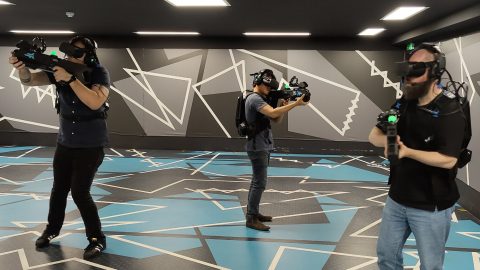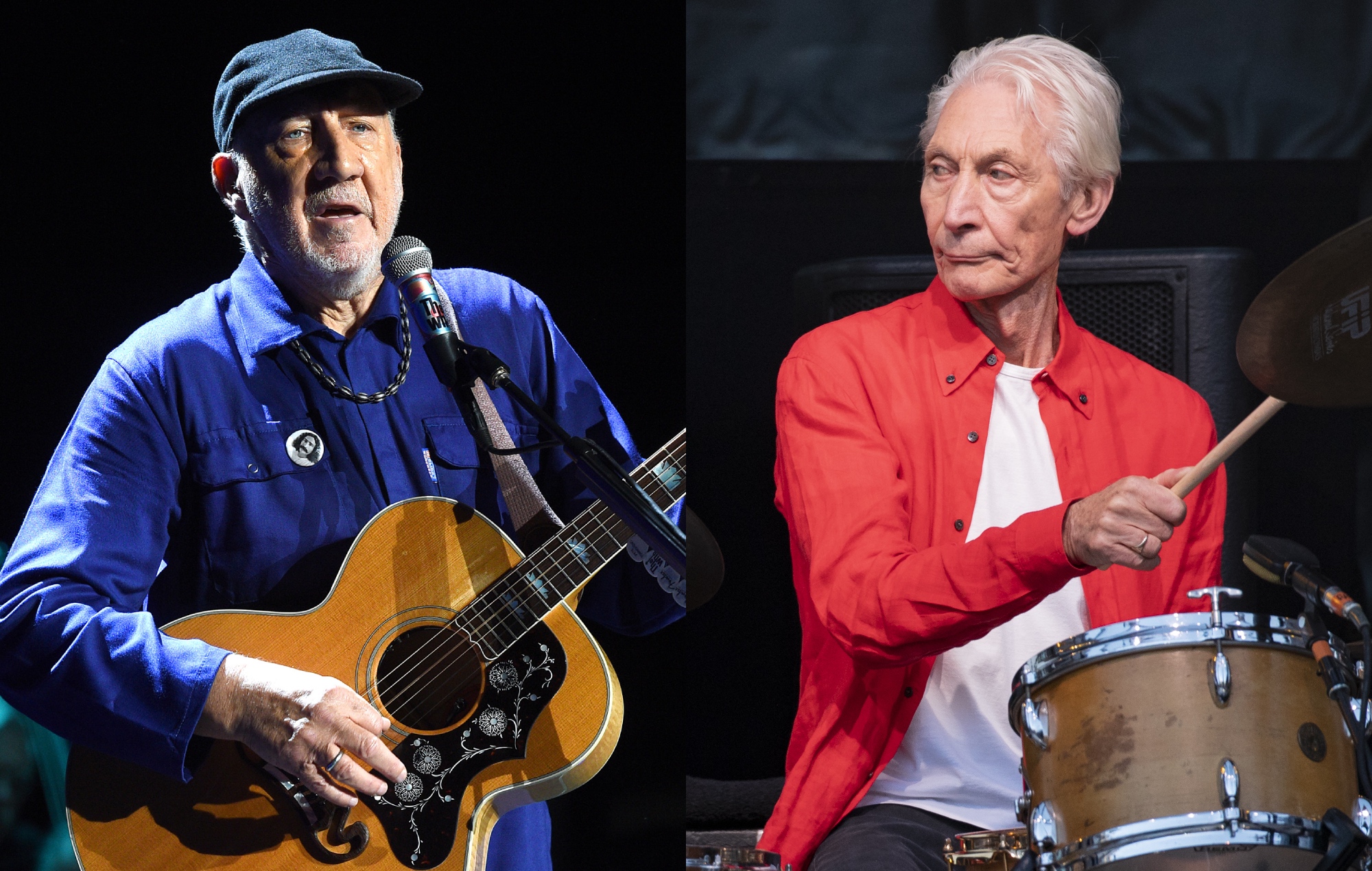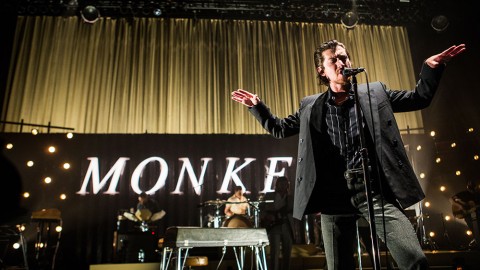NME | Music, Film, TV, Gaming & Pop Culture News

Emir taha is already a chart-topper. ‘B.S.G.’, his collaboration with fellow Turkish artist BEGE, went to Number One back home in Turkey earlier this year, but he’s still making a name for himself outside of his home country. It probably won’t be long until the rest of the globe locks onto the Brixton-based alt-R&B artist’s culture-fusing creations though; he’s sitting at a healthy 30 million streams and counts American rapper Wale and producer Benny Blanco among his fans.
Inspired by the guitar-based music his mum would play when growing up – Sting, Deep Purple and Dire Straits, as well as traditional Turkish artist Barış Manço – he began learning classical guitar, joining a music class aged eight. His YouTube covers as a teen helped establish his name, and he’s since spent time living in LA and London.
These sonic experiences – combined with his heritage – form a deeply personal, international sound. Fusing trap-led beats, acoustic guitar and traditional instrumentation and lyricism, ‘Baka Baka’ and ‘Kendi Yoluna’ are just two examples of emir’s huge crossover potential.
Ahead of the release of his second EP later this month, emir details how he plans to overcome cultural barriers to put Turkey on the global music map.
Growing up in Turkey, were you encouraged to pursue music?
“I was always encouraged by my family and they were really positive, but I just made music naturally. The turning point when I thought I could take it seriously was around 16. I had been posting videos on YouTube of covers of songs I liked but I’d re-produce them. Then [Turkish pop artist] Kenan Doğului called me because he discovered me through that and said ‘let’s make an album together’. That’s when I thought ‘maybe I can start this professionally now’.
Before that, I’d always seen music as just a hobby, even though it was a dream to make money out of music. I moved to London when I was 18 and that’s when my eyes fully opened up; I felt like I could fulfil my potential and cross everything over.”
Was it a difficult choice to leave Turkey?
“At the time I was there, the music scene wasn’t very exciting to me. There wasn’t a lot of people at the time that I could collaborate with or who I could be on the same page with in terms of my vision. It was really hard to exist in the Turkish market because up until five years ago, it was dominated by Turkish pop. It’s shifting right now and there’s a huge Turkish rap scene which is more conversational, real and up to date.”
How does your heritage influence the music you make?
“It’s a collection of everything. I wasn’t just influenced by Turkish music, it’s also from living in LA for two years and then moving to London. In terms of Turkish music, one of the artists that I always looked up to was Barış Manço – he was really creative and stood apart from all the other artists at the time.
I try not to force anything Turkish into my music; I just welcome it the way it comes, which could be in a lyric, guitar sample or drum pattern. I just go with the feeling of it, to keep it authentic and organic. I tend to use a lot of grooves that the world hasn’t heard yet; the very old Turkish grooves and drum patterns.”
How did spending time in LA and moving to London help?
“Spending enough time outside of Turkey allowed me to fully absorb the culture in London and in LA and understand what’s going on. It also helped me to express myself in English and exist in the world as a musician and artist. Being from Turkey, you have loads of barriers…”
What are those barriers?
“One of them is language, because you’ve got to learn the culture to be in a circle in the UK and meet the artists that you look up to and want to work with. When I first moved to the UK, it was a completely different world for me. It took me years to understand how to communicate with the artists here and how the music industry works. After you overcome that and bring in your own background, that’s when it becomes important.”

“At first I was definitely holding back. I was writing something that didn’t have any trace of me”
Did you feel like you had to change yourself to be accepted?
“At first I was definitely holding back. I tried writing something that didn’t have any trace of me, especially when I was in LA. I would write songs that felt fully Western or American, and ones that felt too Turkish. It was me trying to find my tone. When I started to find my ground and what I like, I found a magic moment in the collision of both worlds. That’s when I knew ‘this is what I want to present.’
I take bits in the Turkish world that would maybe be considered lame. I want to twist all those things in a fresh way and translate them to the Western world, to get people to look at them in a different way, like what Rosalía did for flamenco music.”
What do you mean by that?
“Even while making all-Spanish music, Rosalía put that music on the global map without compromising. It’s something that I always wanted to do for the Eastern world where I’m from and especially for my peers that are coming after me. Just to create that bridge, so we could be translated easier and seen and heard by the world. We deserve to be on the global music map, because it’s such a rich culture that goes way back.”
Is Turkish music taken seriously?
“We haven’t seen many Eastern artists existing in the US within the global music world. I think, partly, it’s because a lot of attempts were forcing it; taking an Eastern sample and putting a hip-hop beat on it like ‘OK, now it’s an Eastern song’. But that always felt synthetic and artificial and not like it was coming from someone that had lived it. Right now, I think it’s getting the attention it deserves – as a lot of international artists are – because it’s no longer just classed as ‘world music’. Everyone’s taking it more seriously now.”
Is there a gap in the market for a Turkish artist to break through worldwide?
“I feel like there was a need for someone and that we still need a lot of those people to have an authentic background story to be able to stand up for that community. That’s super important, and I think there’s going to be a lot of artists coming up from that world because we’re not forcing anything. We’re not trying to be anything; we’re just being who we are but we can exist. People are becoming much more aware of how important culture is, so it’s a lucky time for us to exist.”
Your debut EP, ‘Hoppa pt1’, has had over 30 million streams – but you’re still relatively unknown in the UK and US. Why do you think that is?
“Most of the support is definitely coming from back home as well as Germany, because there are lots of Turkish people living there. When we used to have some people over, there were loads of English-born and raised people that had one of my songs saved to their Spotify, I feel like it will definitely connect in the UK at some point – I believe that.
Tell us about your upcoming EP ‘Hoppa pt2’…
“It’s very special to me because I took my whole crew and we wrote some of the tracks in Turkey. The rest were made in LA. It’s all based on different experiences, but it has a darker tone and is more mature. It has different subjects to my previous EP, there’s not one whole message because the songs are all different. ‘Bad Reception’, for example, is about my relationship with God.”
What’s your big dream as an artist?
“I want to be able to do what I’m doing and put the sounds from home on the global map. I also want to pave the way for the people coming after me; maybe set up a foundation to help give a lot of the incredible artists from the Eastern world the recognition that they deserve. I want to help them in any way I can.”
‘Bad Reception’ is out Friday and emir taha’s ‘Hoppa pt2’ EP is out March 26
The post Emir Taha: “I want to put Turkey on the global music map. We deserve to be on there” appeared first on NME | Music, Film, TV, Gaming & Pop Culture News.






